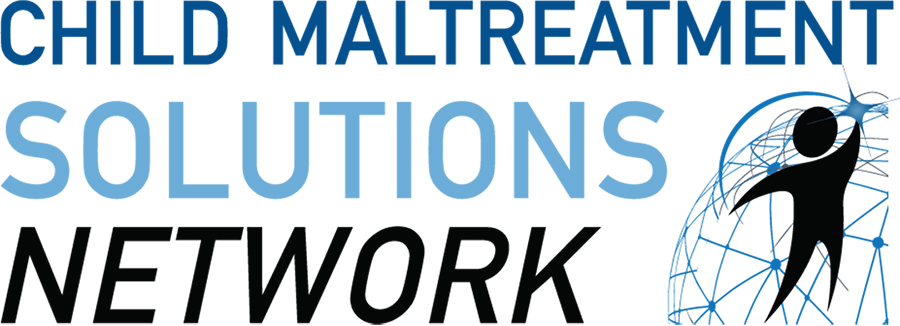
The Child Maltreatment Solutions Network (CMSN) at Penn State has awarded funding to support six projects through its University-sponsored endowment.
“The Network is proud to support Penn State faculty as they lead innovative, interdisciplinary work to better understand and respond to child maltreatment,” said Christian Connell, CMSN director and the Ken Young Family Professor for Healthy Children. “These projects reflect our commitment to advancing research that can strengthen supports for children and families and improve long-term wellbeing.”
The CMSN, a unit of the Social Science Research Institute (SSRI), currently includes nine faculty cofunds in multiple Penn State departments and colleges. This is the first time the CMSN is supporting other Penn State faculty members — including two from the commonwealth campuses.
The projects selected for funding in 2025 include:
Automated Assessment of Child Maltreatment Severity using Transformer-Based NLP Models
Principal Investigator: Jonathan Wright, assistant research professor, at Penn State’s Edna Bennett Pierce Prevention Research Center and Evidence-to-Impact Collaborative
Collaborating Investigators: Max Crowley, C. Eugene Bennett Endowed Chair, professor of human development, family studies, & public policy, Edna Bennett Pierce Prevention Research Center and Evidence-to-Impact Collaborative Director, and Research-to-Policy Collaboration Co-Director; Alex Winters, application developer, Evidence-to-Impact Collaborative; Bethany Shaw, assistant director, data accelerator compliance
The project will develop a computer-based natural language processing model to automate classification of child maltreatment severity based on caseworker notes in child welfare records. The team will use previously reviewed data from local agencies to test different methods and identify the most accurate way to classify case severity.
Medical-Legal Partnerships: An Innovative Intervention to Address Child Maltreatment Among Mothers Experiencing IPV and OUD
Principal Investigator: Katherine McLean, associate professor and administrator of criminal justice, Penn State Greater Allegheny
Collaborating Investigator: Penelope Morrison, associate professor of biobehavioral health, Penn State New Kensington
The project will examine how intimate partner violence and opioid use disorder jointly increase the risk of child maltreatment among women of reproductive age. The research team will conduct in-depth interviews with service providers, with a focus on professionals working in the child welfare system.
Health Outcomes of Prenatal Exposure for Substance-Affected Infants and Their Birth Mothers (NJ HOPE Study)
Principal Investigators: Christian Connell, Ken Young Family Professor for Healthy Children in human development and family studies; CMSN director; Sarah A. Font, associate professor of sociology & criminology
This project will use statewide birth, death, and healthcare records from 2010 to 2022 to examine how prenatal substance exposure affects the health and wellbeing of mothers and their children in New Jersey. By leveraging a policy change that was implemented differently across three counties, the project will also assess whether universal toxicology testing can improve outcomes by identifying substance exposure earlier and helping connect families to supports.
Improving maltreated children's well-being: Testing improved coparenting relations among parents and foster kinship caregivers in child welfare
Principal Investigator: Mark Feinberg, research professor of health and human development
Collaborating Investigators: C. Andrew Conway, postdoctoral scholar, human development and family studies; Marina Lalayants, professor of social work, Hunter College; Erika Lunkenheimer, professor of psychology, CMSN associate director; Hannah M.C. Schreier, associate professor of biobehavioral health; Sarah Font, associate professor of sociology & criminology
This project will pilot “Harmonious Family Foundations”, a structured, program designed to help biological parents and kinship foster caregivers coparent more effectively during child welfare involvement. The research team will partner with Children’s Village in New York to refine the program curriculum and test the program with 20 families.
Examining the neural correlates of reading comprehension, metacognition, and maltreatment
Principal Investigator: Carlomagno Panlilio, associate professor of educational psychology, counseling, and special education
Collaborating Investigators: Matthew McCrudden, professor of education; Koraly Pérez-Edger, McCourtney Professor of Child Studies and professor of psychology
This project will examine how early maltreatment affects reading comprehension in college students with a history of child welfare involvement, focusing on potential disruptions in metacognitive skills like tracking and understanding what they read. Piloting the use of eye-tracking and brain-imaging tools, the study will also explore the cognitive and neural processes involved and assess the feasibility of this approach with transition-age youth.
A pilot randomized trial of a mother-child dyadic positive affect prevention program for reducing mental health symptoms in youth exposed to deprivation
Principal Investigator: Katie Burkhouse, associate professor of psychology
Collaborating Investigators: Autumn Kujawa, associate professor of psychology and human development, Vanderbilt University; Cope Feurer, assistant professor of psychiatry, University of North Carolina Chapel Hill School of Medicine; Alexandra Petryczenko, Penn State graduate student of psychology; Eda Naz Dinç, Penn State graduate student of psychology
This study will test whether strengthening positive shared experiences and parenting strategies can help reduce emotional and behavioral problems in children exposed to high levels of hardship or deprivation. In a randomized trial with 72 mother-child pairs, the research team will compare the “Family Promoting Positive Emotions” program to a standard psychoeducational approach, using surveys and ecological momentary assessment methods to track outcomes.
The CMSN was established in 2012 to serve as an interdisciplinary cluster of faculty members and network staff committed to innovative research, education and outreach efforts to comprehensively address the risks and outcomes associated with child maltreatment. The CMSN also administers the University’s undergraduate minor in child maltreatment and advocacy studies.